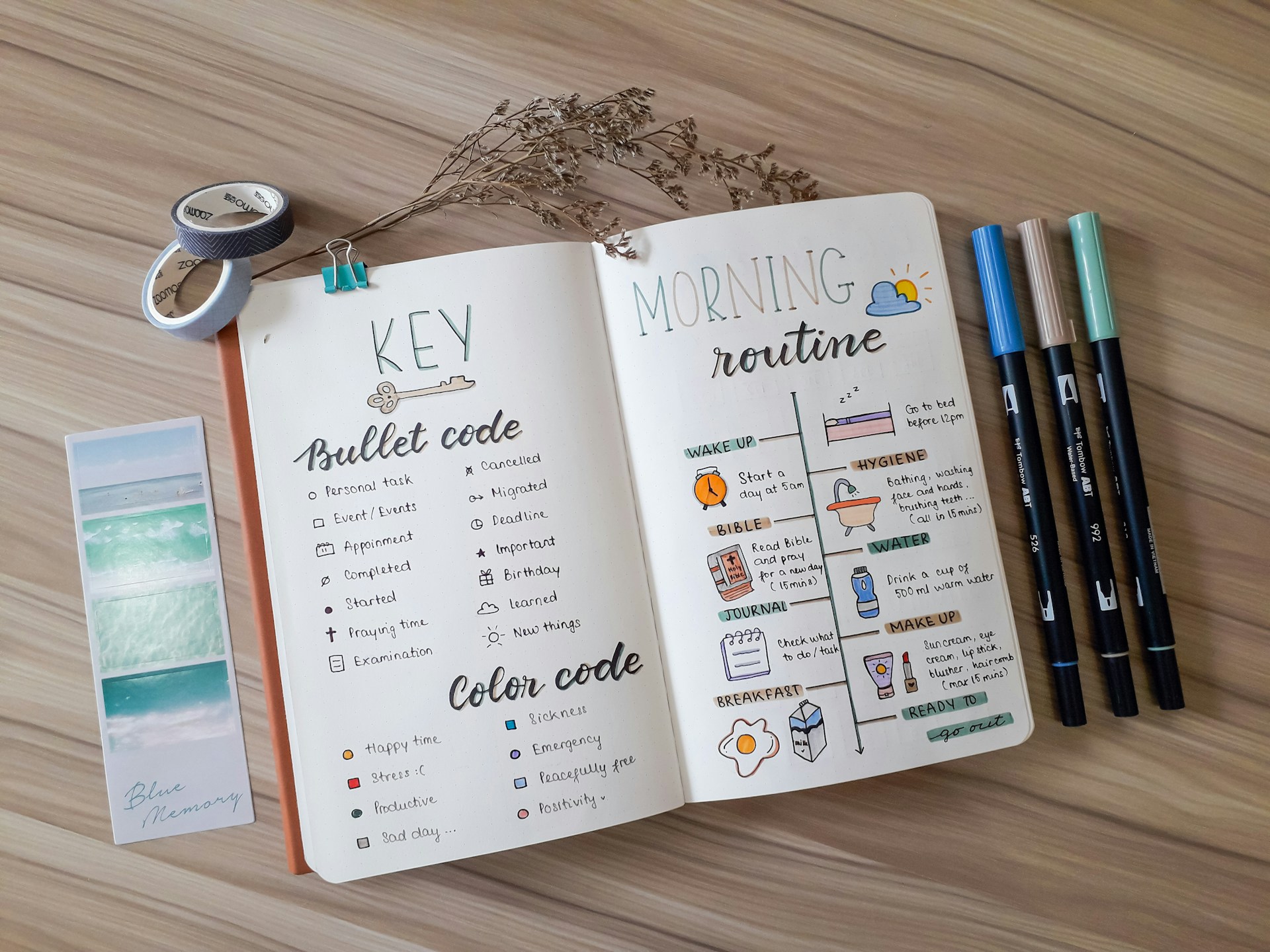When you stop drinking, the world doesn’t always feel peaceful right away. In fact, it can feel disorganized and loud. You wake up and realize your old routines are gone, and suddenly you have all this time and energy with nowhere to put it.
That’s where structure comes in.
Structure gives your days a rhythm again. It’s what helps your brain heal, your body relax, and your emotions settle. It’s not about being strict. It’s about building a steady path under your feet so you can keep walking forward.
Let’s look at what’s really happening in your brain and why simple routines matter more than most people realize.
1. Alcohol Knocks Your Brain Off Balance
Alcohol doesn’t just affect your liver or your sleep. It changes how your brain works. It damages the areas that help you plan, focus, and control impulses. It also rewires your reward system, so your brain starts chasing the instant relief alcohol brings instead of long-term satisfaction.
When you stop drinking, that system feels confused. It’s used to chaos. Creating a steady daily structure is how you teach your brain what stability feels like again.
Even small things matter. Waking up at the same time every morning. Making your bed. Having a coffee or breakfast. These little habits tell your brain, “You’re safe. You know what’s coming next.” That’s how healing starts.
2. Structure Helps Calm the Stress Response

One of the toughest parts of early recovery is how unpredictable your emotions can be. Some mornings you might feel clear and calm, and others your chest is tight for no reason. That’s your stress system (called the HPA axis) trying to find its balance again.
Alcohol used to dull those feelings. Now they’re all back. A routine helps your body settle by removing uncertainty. If you know when you’re eating, sleeping, and taking breaks, your body starts to relax because it doesn’t have to stay on alert.
Having a plan, even a loose one, can stop your thoughts from spinning. For example:
- Wake up and take a quick shower, even if you don’t feel like it.
- Eat breakfast at the same time.
- Set aside ten minutes to sit quietly, breathe, or stretch.
For example, not grabbing your phone before you take a quick shower, brush your teeth, and have breakfast can truly change the outlook of your day for the better. Adjusting these small things in your life can drastically change your subconscious one day at a time.
It’s not about being perfect. It’s about giving your mind fewer things to guess about.
3. Small Actions Build Momentum
When you’re in recovery, even brushing your teeth can feel like a win. It sounds simple, but it’s actually a powerful signal to your brain. It says, “I’m taking care of myself.”
That’s where structure really helps. Doing one small healthy thing makes it easier to do another. You brush your teeth, then maybe make your bed. You make your bed, then maybe take a walk. Each action builds on the next. Psychologists call this “behavioral momentum.” It’s how motivation grows naturally instead of forcing it.
If you start your mornings with one easy task that you can repeat every day, it becomes a small anchor. It gives your day direction before your mind has time to drift back toward old habits.
4. Routine Helps Your Sleep and Energy Reset

If you’ve ever tried to sleep sober after drinking for years, you know how strange it can feel. Alcohol used to knock you out, but it never gave you real rest. When you stop, your body has to relearn how to sleep on its own.
Your brain loves consistency. Going to bed and waking up around the same time each day teaches it when to release sleep hormones like melatonin. Getting sunlight in the morning and eating regular meals helps too.
Good sleep is one of the biggest signs your body is recovering. It restores your mood, helps control cravings, and gives you energy to stay focused on what matters.
5. Structure Reduces Overthinking
In early recovery, every day can feel full of decisions. Should I go to a meeting? Should I work out? Should I call someone? That constant decision-making is exhausting, and when your brain gets tired, it looks for the easy way out.
That’s often when cravings hit.
Structure takes away that pressure. When you already have a plan, you don’t have to keep choosing. You just follow through. For example, if you know that every evening at 7 you walk your dog or call a friend, you don’t have to debate what to do. It’s just part of your day now.
Writing down a short plan each morning can make a big difference. It doesn’t need to be fancy. Something like:
- Go for a walk after breakfast
- Call my sponsor after lunch
- Make dinner and read for 20 minutes before bed
These tiny commitments give your brain a clear direction and keep it from wandering back toward old thoughts.
6. Filling the Space Alcohol Left Behind
Let’s be honest. Drinking had its own kind of rhythm. There was a pattern to it—the anticipation, the ritual, the release. When that’s gone, the silence can feel uncomfortable.
Structure gives you a healthier rhythm to replace it with. You start to look forward to other moments: your morning coffee, a call from someone who understands, that feeling of lying down sober at night knowing you made it through another day.
That’s why programs like the 12 Steps or other recovery groups work so well. They naturally build structure into your week through meetings, reflection, and connection with others who are doing the same work.
7. Repetition Rewires the Brain
The brain changes through repetition. Every time you stick to your routine—no matter how small—you’re strengthening new connections that support calm, focus, and long-term thinking.
This process, called neuroplasticity, is the brain’s way of rebuilding itself after addiction. It doesn’t happen through one big breakthrough. It happens through hundreds of tiny, steady actions.
It’s the reason why something as ordinary as cooking dinner or writing in a journal can feel deeply satisfying over time.
Your brain is literally learning what normal life feels like again.
8. Structure Makes You Feel Safe
When you know what’s coming next, you don’t have to live in reaction mode anymore. That sense of safety is powerful. It helps your emotions even out and reduces the urge to escape.
Try creating little anchors throughout your day that tell your brain you’re okay.
- A few deep breaths before you start the car
- Listening to the same calm playlist when you cook dinner
- Writing down three good things before you sleep
These small acts build emotional safety. They remind you that you’re not just surviving the day—you’re shaping it.
9. Structure Builds Connection
Recovery isn’t a solo project. Having structure helps you stay connected to people who understand. That might mean going to a regular meeting, calling a sponsor, or having lunch with a friend who supports your sobriety.
When these things are part of your weekly rhythm, you don’t have to think twice about reaching out when you need help. It’s already built into your life.
10. Finding Freedom in Routine
Some people worry that structure will make their lives boring or restrictive. In reality, it’s the opposite.
When your days have rhythm, you gain freedom from chaos. You stop running from yourself. You start trusting your own consistency again.
There’s a quiet kind of peace that comes from knowing what time you’ll wake up, what you’ll eat, who you’ll talk to, and how you’ll end your night. It’s not glamorous, but it’s real. It’s steady. And it’s where healing happens.
Simple Ways to Add Structure Today
- Wake up around the same time every morning.
- Eat three regular meals instead of skipping.
- Plan one thing each day that moves your body.
- Write down a few tasks each morning so your day has direction.
- Go to bed at a consistent time, even on weekends.
- Schedule something social that supports your recovery.
- Keep one small ritual you look forward to, like a nightly cup of tea or journaling.
Recovery isn’t about perfection. It’s about showing up for yourself, one small routine at a time.
The structure you build doesn’t just keep you sober—it helps you rebuild trust in your own hands, your own timing, your own life.







